|
|
|
Editor's note
|
|
Two women received science Nobel Prizes this past week: Donna Strickland in physics and Frances Arnold in chemistry. They join a very elite club – and bring the total number of female science laureates to 20 out of 607. Arizona State scholar Mary Feeney writes that she looks forward to a time when a woman winner is “newsworthy only for her science and not her gender.” But for now, women in academic science face some serious barriers on the road
to parity. Be sure to check out some of our other coverage of the 2018 Nobel Prizes, too.
If Brett Kavanaugh is confirmed to the Supreme Court, he will follow in Neil Gorsuch’s footsteps as a “minority justice” appointed by a “minority president” who lost the popular vote but won the electoral vote. Political scientist Kevin J. McMahon explores how the growing number of minority justices on the court could set the institution at odds with the American public.
Equipping a young child with a cellphone for school is often seen as a way for parents to quickly get in touch should the need arise. But research conducted by psychologist and bullying expert Elizabeth Englander found that providing cellphones to elementary school children comes with certain risks. She offers parents a series of tips to help keep cellphone-carrying children safe.
|
Maggie Villiger
Science + Technology Editor
|

|
|
Top stories
|
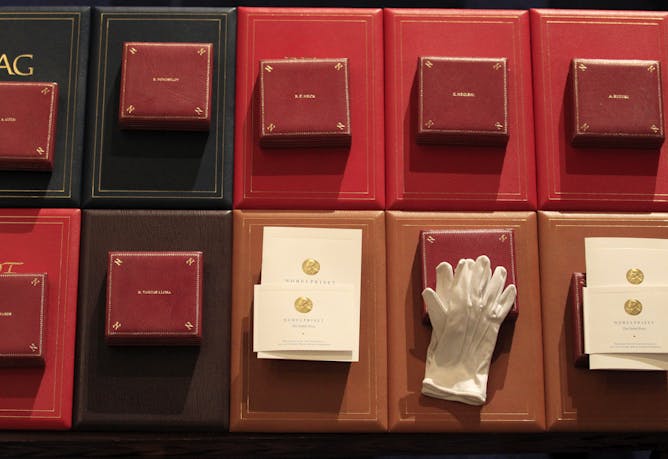
Only 3 percent of these prizes have gone to women since 1901.
Reuters/Pawel Kopczynski
Mary K. Feeney, Arizona State University
Progress has been made toward gender parity in science fields. But explicit and implicit barriers still hold women back from advancing in the same numbers as men to the upper reaches of STEM academia.
|
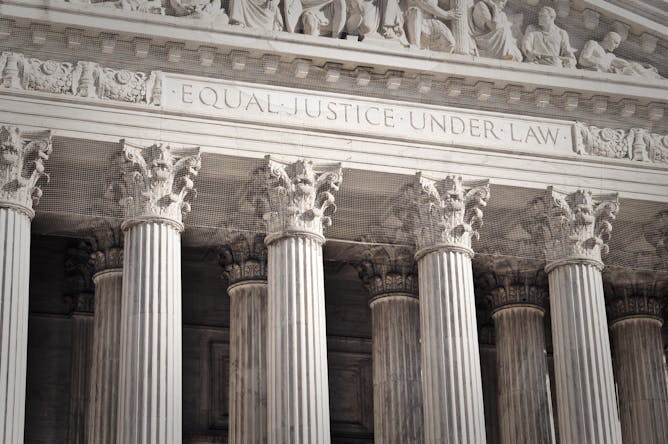
The U.S. Supreme Court.
Shutterstock
Kevin J. McMahon, Trinity College
Democrats won the popular vote in six of the last seven presidential elections, but Republican presidents have appointed a majority of the sitting justices. Is the court out of step with America?
|
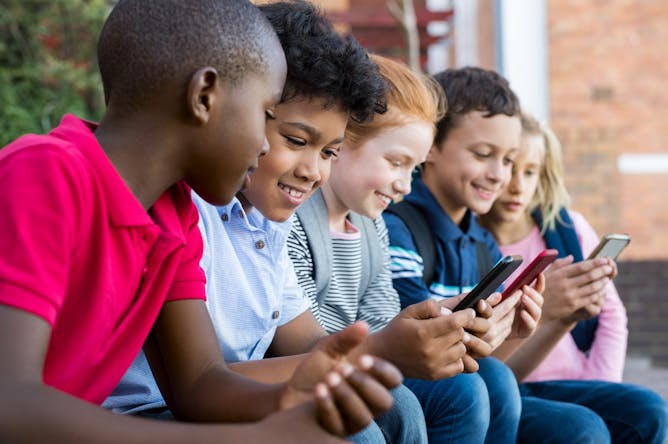
Cellphones carry certain risks for elementary school students.
Rido/www.shutterstock.com
Elizabeth Englander, Bridgewater State University
While many parents believe equipping their young child with a cellphone is a matter of safety, research shows the practice comes with certain risks.
|
Politics + Society
|
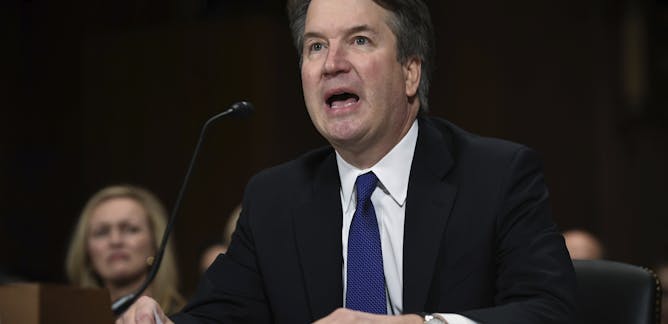
Paul M. Collins, Jr., University of Massachusetts Amherst; Lori A. Ringhand, University of Georgia
One striking feature of Brett Kavanaugh's testimony was the number of times he interrupted. Data shows that hearing interruptions are becoming more common, particularly when the nominee is female.
| |
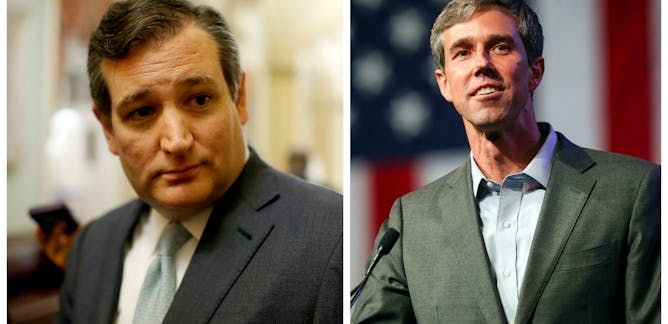
James Henson, University of Texas at Austin
Pollsters at the University of Texas in Austin explain why the numbers just don't add up for the Democrat.
|
|
|
Health + Medicine
|
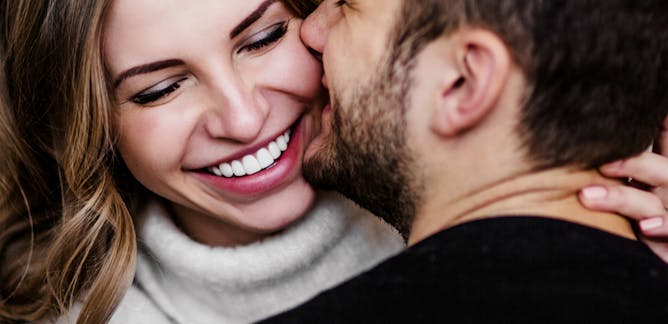
Joan M. Cook, Yale University
In the wake of the #MeToo movement and women finally feeling free to discuss having been sexually assaulted, it may seem like all men are predators. A trauma psychologist says this is far from true.
| |
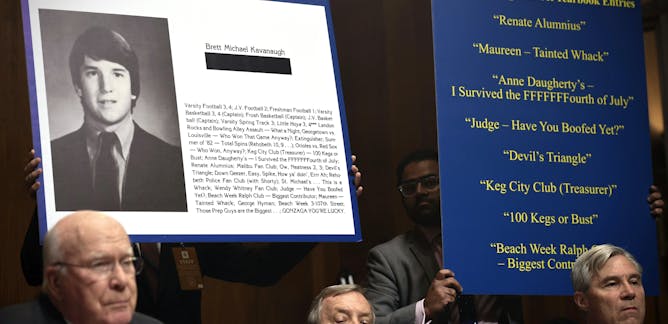
Heather Hensman Kettrey, Clemson University ; Robert Marx, Vanderbilt University
The Kavanaugh hearings have brought sexual assault to the forefront. A just-published study suggests that bystanders can help prevent it.
|
|
|
Nobels
|
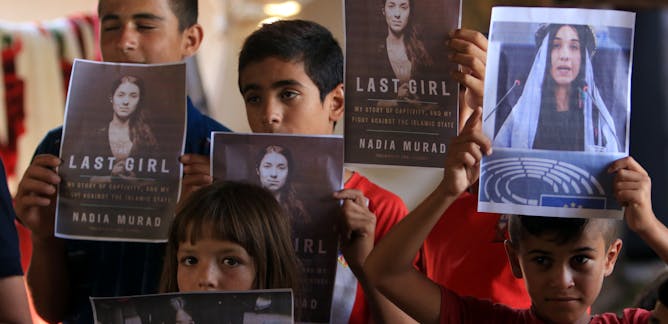
Naomi Schalit, The Conversation
With the 2018 Nobel Peace Prize awarded to two leaders who fight against sexual violence as a tool of war, we looked into our archive to find stories about those efforts across the globe.
| |
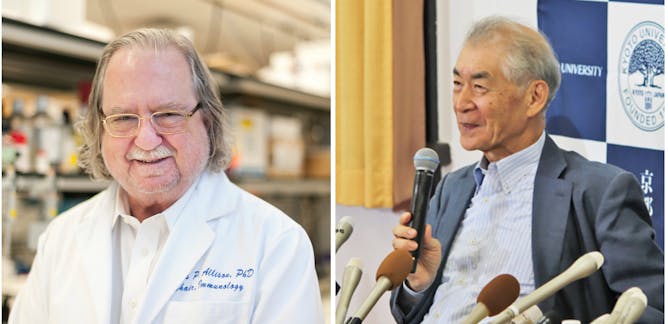
Duane Mitchell, University of Florida
James Allison and Tasuku Honjo won the 2018 Nobel Prize in Physiology or Medicine for encouraging immune cells to attack cancer. See how their work has revolutionized cancer therapies and medicine.
|
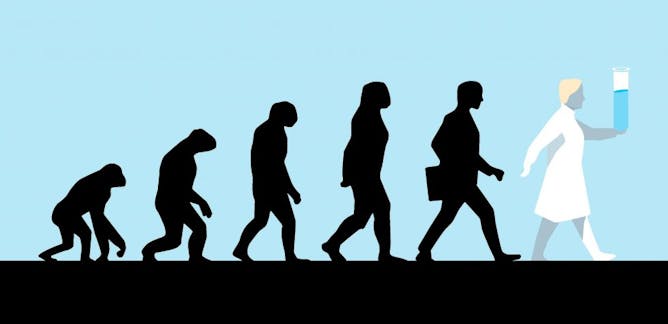
Brian Bachmann, Vanderbilt University
Nature doesn't always make the things we need so three Nobel Prize winners figured out how to fast-track evolution in the lab to create medicines, biofuels and industrial chemicals for modern life.
| |
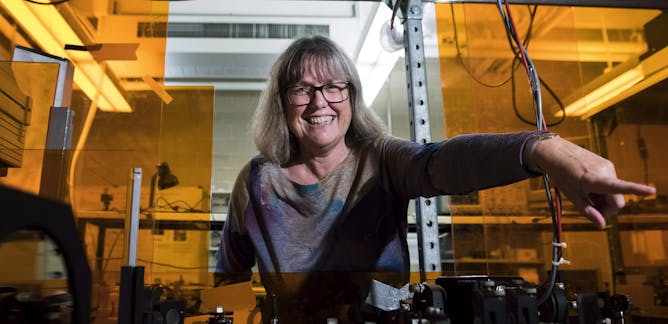
Todd Adams, Florida State University
The Nobel Prize for physics was awarded to three scientists for the inventions of optical tweezers – in which two laser beams can hold a tiny object – and a method for creating powerful lasers.
|
|
|
Economics + Business
|
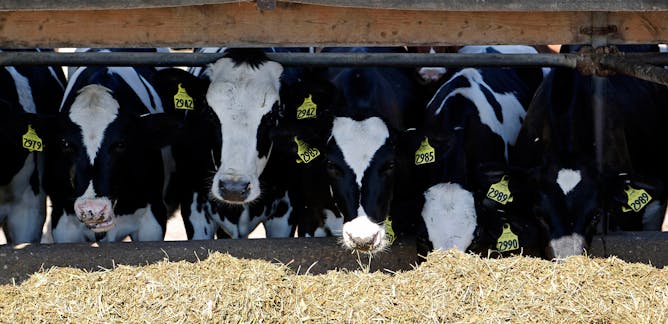
Amanda M. Countryman, Colorado State University
Canada, the US and Mexico are about to rip up the 25-year-old NAFTA and replace it with something new. But how new?
| |

Philip Hackney, University of Pittsburgh; Brian Mittendorf, The Ohio State University
Harvesting gains from digital money by giving some of it away can be better for donors than the nonprofits they support.
|
|
|
Environment + Energy
|
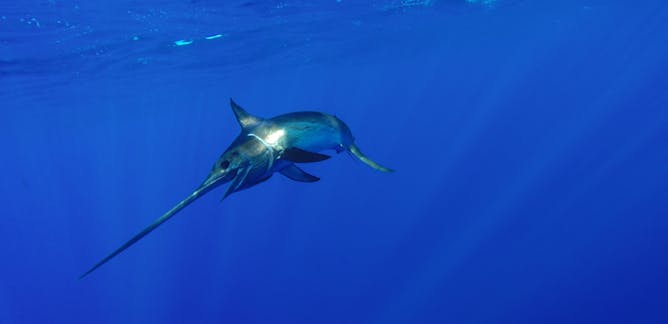
Heather Welch, University of California, Santa Cruz; Elliott Lee Hazen, National Oceanic and Atmospheric Administration; Stephanie Brodie, University of California, Santa Cruz
A new tool called EcoCast helps fishermen in the West Coast figure out where it's best to fish that day.
| |
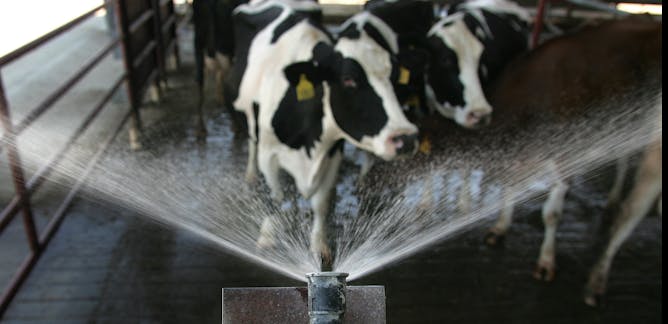
Alycia Drwencke, University of California, Davis; Cassandra Tucker, University of California, Davis; Theresa Pistochini, University of California, Davis
Dairy cows are sensitive to heat, so farmers cool them down with sprinklers and fans. Researchers are designing better, more efficient systems to keep cows comfortable through hot California summers.
|
|
|
Ethics + Religion
|
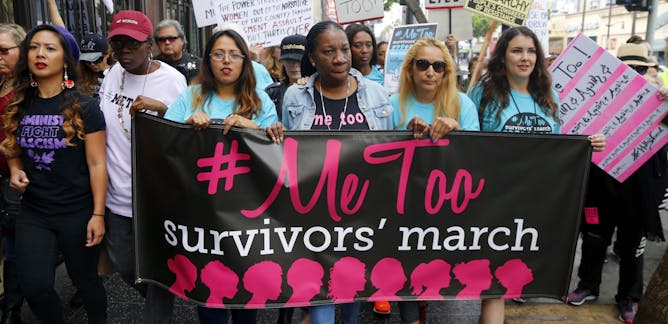
Andrew Khoury, Arizona State University
Whether the sins of our past stay with us forever has become a pertinent question of our time. A philosopher argues we don't need to carry our past burdens – although there are some moral conditions.
| |
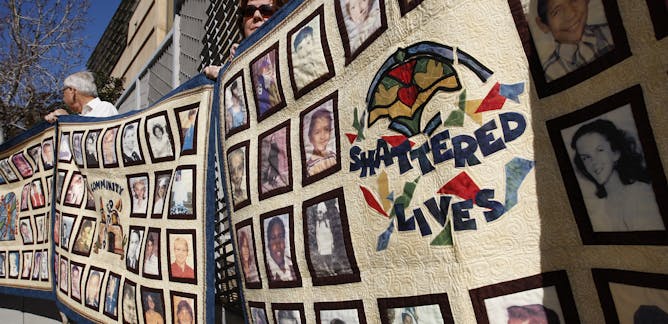
Melissa Wilde, University of Pennsylvania
The Second Vatican Council made many doctrinal changes possible in the Catholic Church. An expert argues why the church needs another such council.
|
|
|
Education
|
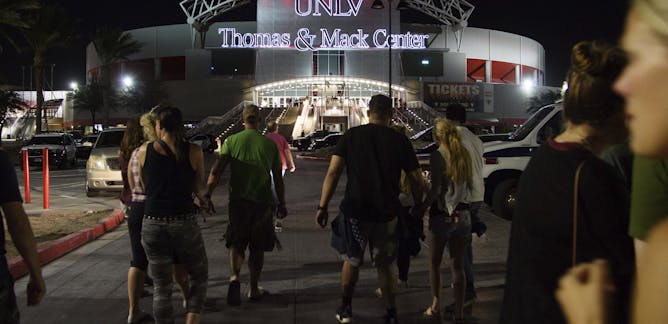
Michelle Paul, University of Nevada, Las Vegas; Heather Dahl, University of Nevada, Las Vegas; John A. Nixon, University of Nevada, Las Vegas; Noelle Lefforge, University of Nevada, Las Vegas
One year after the Oct. 1 shooting massacre in Las Vegas, a team of scholars from the University of Nevada, Las Vegas offers insights into how to best help those affected by the violence.
| |
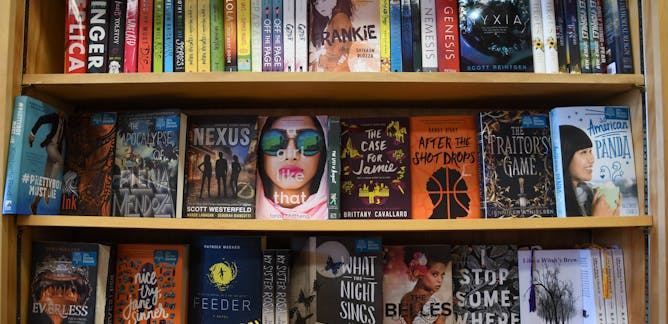
Kelly Roberts, Meredith College
An English professor says educators should use "Speak" – an often banned novel about sexual assault – to engage young people about the topic.
|
|
|
Arts + Culture
|
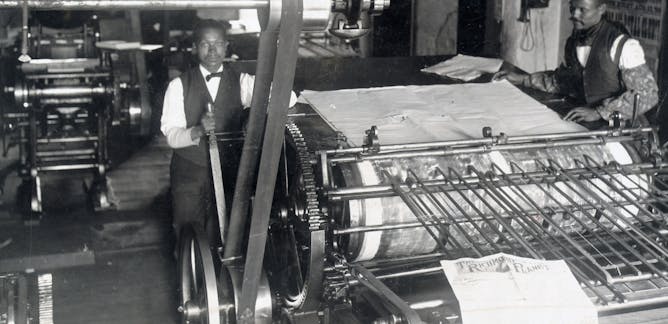
Randall S. Sumpter, Texas A&M University
To survive in 19th-century newsrooms, reporters would have to hustle to get by, even if it meant producing fakes, staging events and sharing work with reporters from competing newspapers.
| |
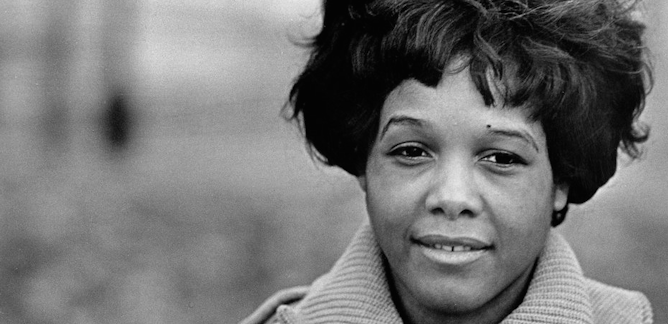
Leigh Ann Wheeler, Binghamton University, State University of New York
Does Anne Moody's memoir represent how far we've come as a society. Or is it a stark reminder of how far we need to go?
|
|
|
Science + Technology
|
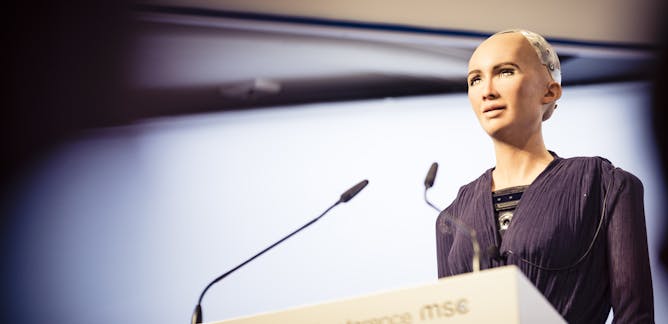
Roman V. Yampolskiy, University of Louisville
A legal loophole could grant computer systems many legal rights people have – threatening human rights and dignity and setting up some real legal and moral problems.
| |
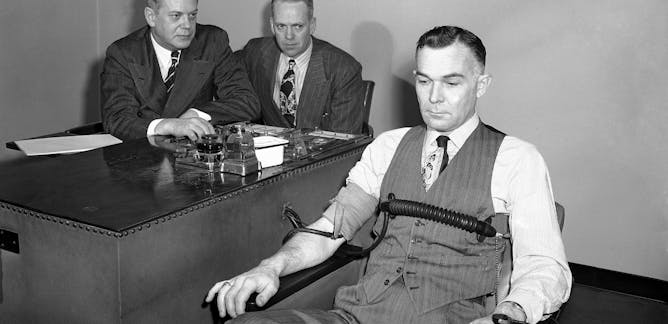
Jessica Gabel Cino, Georgia State University
It would be great to know for sure when someone is lying and when someone is telling the truth. But no technology that purports to do so is foolproof.
|
|
|
| |
| |
| |
| |
| |
| |
|
|
|
|
|
|
|